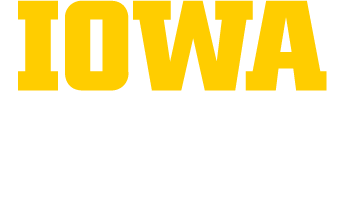Our primary areas of focus include twice-exceptionality, equity and access to opportunity through a talent search model, and academic acceleration.
Twice-Exceptionality
Many gifted students may also have a disability or impairment that can present behavioral, emotional, social, or learning challenges. These may include Autism Spectrum Disorder (ASD), Attention-Deficit/Hyperactivity Disorder (ADHD), Specific Learning Disabilities(SLD) such as dyslexia or dysgraphia, or mood disorders such as anxiety or depression.
The Belin-Blank Center is a pioneer in researching twice-exceptionality, beginning with our 2005 collaboration with the Iowa Department of Education. That study was crucial in spreading knowledge about what twice-exceptionality is and what it looks like in a child. It also provided recommendations about how to best support these students' talents and academic needs inside the classroom and out.
For almost 15 years, we have been working to understand and support the characteristics, strengths, and struggles of these unique individuals. Now, in collaboration with the Iowa Neuroscience Institute, we are moving the field forward again. This time, we are combining education, psychology, neuroscience, and genetics to better understand the mechanisms and behaviors surrounding twice-exceptionality.
Recently the Belin-Blank Center, in partnership with the University of Iowa College of Education, was awarded a grant titled Innovations in Discovering and Developing Talented Twice-Exceptional Students
(DD2E). The four primary objectives are to: 1) Identify/discover twice-exceptional students using nontraditional methods and deliver talent development services and opportunities designed for twice exceptional
students; 2) train educators and mental health professionals with the knowledge and skills to
implement nontraditional screening and identification models and provide education
interventions that prepare twice-exceptional students for high school, college, career, and civic
life; 3) increase the number of educators from traditionally
underrepresented backgrounds who are certified to identify and teach all gifted and talented
students, including the twice exceptional; and 4) broadly disseminate
information of a new model that directly addresses challenges of discovering and developing
twice-exceptional students nationwide.
Equitable Access to Opportunity
In Iowa, where a majority of schools are in rural areas or small towns, geography can sometimes stand in the way of academic opportunities. Due to small student populations and limited funds, students in these schools often do not have the resources and programs available to their urban and suburban counterparts. Since 1999, the Belin-Blank Center has been a champion for increasing access to challenging coursework and other opportunities that allow talented students in these settings to develop their full potential. Our goal is that geography no longer dictate opportunity.
Project HOPE, is a STEM-based curricular intervention that integrates career exploration opportunities designed to connect middle school students to the health science professions. Project HOPE helps students to gain: 1) knowledge of the health sciences and potential career opportunities, 2) an understanding of the critical connection between high school academic subjects and a future in a health science profession, 3) a future plan of how to attain health science career related goals, and provides 4) exposure to the health sciences through simulated experiences.
The Talent Identification and Career Exploration (TICE) program was funded through a Jacob K. Javits grant to increase opportunity and access for marginalized students from backgrounds historically underrepresented in talented and gifted (TAG) programs. Participants were high-achieving 6th and 7th grade students attending elementary and middle schools in rural, suburban, and urban areas of the Midwest. Over four years, 1,020 students from 19 schools participated in four modules of engaging activity to help them discover their strengths and talents, as well as potential academic and career paths to explore in high school and beyond.
Following training sessions for educators on identification and curriculum implementation, the students in TICE completed four modules. "Module #1: Build Your Future Community" allowed students to consider what future jobs and careers would be in demand within their communities, while "Module #2: Know Yourself—What Do You Like to Do?" asked the students to take the Self-Directed Search and explore how the different Holland Codes related to their personality and preferred job environments. The students matched their personal Holland Codes with potential jobs of interest in the future. "Module #3: Know Yourself—Strengths and Possible Barriers" prompted the students to evaluate their personal strengths and discuss strategies for addressing barriers to success. Finally, "Module #4: Put It All Together" required the students to synthesize the information from the first three modules and deliver a presentation related to possible directions for their academic and career choices.
The TICE curriculum and related materials are free and available for educators to use in their schools.
- Javits-TICE Curriculum Overview Video
- Please note that feedback forms as mentioned in the video are no longer necessary.
- Strengths Profiles are now in a worksheet format and will look different than in the video.
- iseek.org no longer exists and a replacement website will be referenced in the manual.
- TICE Manual (coming soon)
- TICE Student Workbook (coming soon)
- Barriers Bingo materials (coming soon)
Rural students are an underrepresented population in STEM education. STEM Excellence and Leadership aimed to raise rural students' aspirations and achievement in STEM subjects through an informal STEM learning environment. The program used out-of-school math and science curriculum for grades 6-8 to prepare students for more advanced coursework in high school. Through research funded by the Jack Kent Cooke Foundation and the National Science Foundation, we demonstrated that the talent development model can broaden the identification of STEM talent in rural schools (Assouline, Ihrig, & Mahatmya, 2017). Educators implementing the out-of-school program leveraged the strengths of rural communities (Ihrig, Mahatmya, Assouline, & Lynch, 2019). Educators and students perceived program participation positively (Ihrig, Lane, Mahatmya & Assouline, 2018). These results highlight rural educators’ agency as key in shaping effective informal STEM learning environments to broaden rural students' participation in quality STEM programming.
Academic Acceleration
Academic acceleration is the most research-supported but under-utilized and misunderstood intervention for gifted students.
Acceleration is an academic intervention that moves students through an educational program at a faster rate or younger age than what is typical. When done appropriately, it creates a better match between a student and the level and pace of instruction.
For many people, “acceleration” is synonymous with "grade skipping," but there are actually over 20 different types of acceleration, including early entrance to kindergarten or college, moving ahead in just one subject, and enrolling in classes at two different levels at the same time (dual/concurrent enrollment).
The Belin-Blank Center is an international leader in research on academic acceleration. Our expertise is housed in our Acceleration Institute, with research broken down for parents, educators, policymakers, and researchers. Most notably, we published the watershed report A Nation Deceived, which highlighted research-based practices for challenging academically talented youth, and its ten-year follow-up, A Nation Empowered, which tells the story of how well we have applied what we have learned.
We also want to help teachers and students directly benefit from our decades of research on acceleration, so we provide research-based practical solutions for schools. Educators and families wondering whether or not a particular student should skip a grade can find guidance in the Iowa Acceleration Scale, a well-respected tool updated in 2009 that helps to help schools make effective decisions regarding whole-grade acceleration. In 2021, we launched the all-online Integrated Acceleration System, which helps educators and families with decisions about grade skipping, early entrance to kindergarten, subject acceleration, and early entrance to college. Information for making decisions about whether a student should be moved ahead in a single subject is available in the subject acceleration section of the Acceleration Institute website. Our report Developing Academic Acceleration Policies supports schools in creating comprehensive and research-based acceleration policies.





